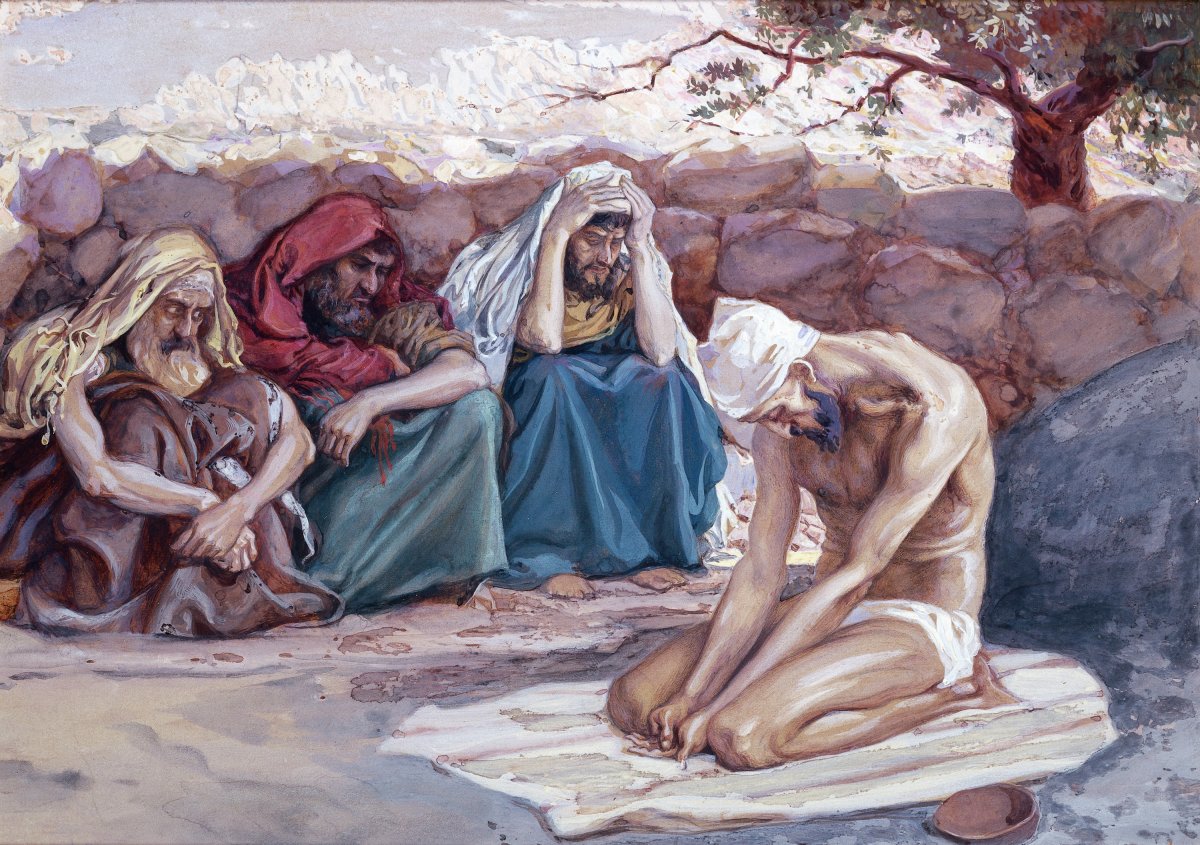THE EPISTLE OF ROMANS - Part 11 of 15 – Romans 7:1-12

Click here for the audio teachings for this series.
Chapter 6 of Romans elaborates on our deliverance from sin through Jesus Christ. Chapter 7 elaborates on our deliverance from law through Jesus Christ.
The case for Christ against all points of argument continues to build. Justification by faith apart from the works of the Law is addressed even further in chapter 7 and into 8.
SAINTS WHO WERE MARRIED TO THE LAW DIED TO THE LAW THROUGH CHRIST: Through chapter 7 and into chapter 8 the Apostle Paul was speaking to those who were involved in keeping the Law of Moses. They were trying to live for God but they were doing so through the keeping of the Law and the fruit produced is death. The harder they tried the greater the realization of their failure. What was the solution? God’s grace through Jesus Christ our Lord (Romans 7:24-25).
We too, have received this abundant grace. Because of the grace we have through Christ we serve God in newness of the spirit (the New Covenant) and not in the oldness of the letter (the Old Covenant) according to Romans 7:6. The Old Covenant is the Law of Moses.
Romans 7:1-4 “1 Since I am speaking to those who understand law, brothers, are you unaware that the law has authority over someone as long as he lives? 2 For example, a married woman is legally bound to her husband while he lives. But if her husband dies, she is released from the law regarding the husband. 3 So then, if she gives herself to another man while her husband is living, she will be called an adulteress. But if her husband dies, she is free from that law. Then, if she gives herself to another man, she is not an adulteress. 4 Therefore, my brothers, you also were put to death in relation to the law through the /crucified/ body of the Messiah, so that you may belong (by marriage, by union) to another––to Him who was raised from the dead––that we may bear fruit for God.” (HCSB)
- These first four verses are analogous to why we are dead to the Law through the death of Jesus Christ. Chapter 6, verses 14 and 15 already told us that those who are baptized into Christ Jesus are not under law.
- The New Covenant realities are contrary to legalism in that nothing is achieved or acquired by us. Jesus Christ was appointed heir of all things (Hebrews 1:2). Now we are allowed the privilege of being joint-heirs with Christ (Romans 8:17a) in all things. An heir doesn’t earn what is willed to him through achievement. He simply accepts the gracious gifts. As joint-heirs with Christ we can neither gain more of what was willed to us nor lose it.
- The systems of this world are laced with legalism, being achievement oriented. This is why the immature saint is so easily led toward legalism. It is natural to the way he has been conditioned by this world.
- Legalism makes the achiever the focal point: are you achieving or are you not?
- Grace makes the giver the focal point: the receiver responds with thankfulness for the gracious gifts.
Verse 1
- I am speaking to those who understand law To understand chapter 7 and into chapter 8, it is crucial to acknowledge who is being addressed. Paul is speaking to those who understand the Law, those who were submitting to the Law of Moses as a means to live for God. The word “understand” doesn’t mean to just have a head-knowledge of something, like you would acquire from a book. It means to know intimately, personally, experientially like one would know his profession.
- Brothers A brother is one of the same kind. The context is about knowing the Law. The Apostle Paul was exceptionally intimate with the Law of Moses. See Philippians 3:4-8. This is why he speaks in the first person in chapter 7. He personally relates to the Law.
- are you unaware that the law has authority over someone as long as he lives? The main argument against the grace of Christ at that time was that Moses, as a prophet of God, had passed down to the nation of Israel the Word of God in the form of ten commandments. Anyone who was going to live for God MUST live under the authority of The Law of Moses. Who was Paul to say otherwise? So Paul gives an analogy to explain.
Verses 2-3 are the analogy.
Verse 4
- Therefore Based on this analogy…
- my brothers who are intimate with the system of the Law of Moses to live for God.
- you also were put to death in relation to the law through the body of the Christ. This is the main point of this section of chapter 7.
- so that you may belong (by marriage) to another In scripture Christ is ALWAYS in the husband/ groom role, and the Church is ALWAYS put in the wife/bride role in relation to Christ. This is a key point which is difficult for us to grasp due to our living in a culture which is rapidly dissolving God’s arrangement for marriage. The man is the head of the wife (1Corinthians 11:3). The head directs the body. The man is to direct his wife. This may be best seen in 1Peter 3:5-6a “5 For after this manner aforetime the holy women also, who hoped in God, adorned themselves, being in subjection to their own husbands: 6 as Sarah obeyed Abraham, calling him lord.
- that we may bear fruit for God The Church being joined to Christ as her husband is the means by which we can bear fruit for God. The following section of scripture is going to tell us the reason why those who are under law cannot bear fruit for God. We are going to see in this section that the law results in death because of sin. A dead man cannot produce anything.
Romans 7:5-6 “5 For when we were in the flesh, the sinful passions, which were (aroused) through the law, wrought in our members to bring forth fruit unto death. 6 But now we have been discharged from the law, having died to that wherein we were held; so that we serve in newness of the spirit, and not in oldness of the letter.” (ASV)
Verse 5
- For when we were in the flesh It’s very important to pay attention to the time being spoken of, whether past, present or future when reading your Bible. The time change here hinges upon Christ crucified. This verse is referring to the time before his death. The phrase in the flesh in this context is referring to living for God by your flesh, or by your own ability, apart from Christ’s redemptive results. The only other way God had given for man to live for him was in the keeping of the Law of Moses. See also verse 18.
- the sinful passions, which were (aroused) through the law, wrought in our members to bring forth fruit unto death. The last verse in chapter 6 leading into this section tells us that the wages of sin is death. Sin earns death – no life with God. What does sin have to do with the Law? This is one of the points of this section and it is further addressed in the answer to the final question in verse 13. See also 1Corinthians 15:56 and Romans 3:19-20. But to get to that question, the question in verse 7 needs to be asked: Is the law sin?
Verse 6
- But now we have been discharged from the law Notice the time change being spoken of here. Then we are given the one main point of this section, we have been discharged from the law.
- having died to that wherein we were held Who is the “we?” Remember from verse 1 Paul is still speaking to those who intimately know the Law of Moses. Those who were in that category were held by the Law as a woman is held to her husband by law.
- so that in order that
- we serve in newness of the spirit, and not in oldness of the letter. This phrase is telling us how to serve God. “In newness of the spirit” refers to something specific as does “in oldness of the letter.” The latter is the doctrine of the Law of Moses. The former is the doctrine of the grace of Christ. “Serve” is used 8x in Romans 6:15-22 which tells us that this is how to serve God, by serving our new master - grace. The word “newness” tells us that there is a new way to serve God, which is not like the old way. For more insight into this see Romans 6:4 "newness," Romans 12:2 "renewing," and 2Corinthians 5:17 were "new" is used 2x.
In the following verses of 7:7-23, dealing with the problem of being under law, there is no more mention of “bearing fruit unto God,” “Christ” or “the spirit.” These aren’t mentioned because they aren’t associated with the keeping of law.
Romans 7:7-8 “7 What shall we say then? Is the law sin? God forbid. Howbeit, I had not known sin, except through the law: for I had not known coveting, except the law had said, Thou shalt not covet: 8 but sin, finding occasion, wrought in me through the commandment all manner of coveting: for apart from the law sin [is] dead.” (ASV)
- What shall we say then? Is the law sin? In conclusion, what shall we say? The case for Christ has developed into the third question which, in natural progression, is argued against the gospel. Are you saying that there is a problem with the Law of Moses, Paul?
- God forbid. Howbeit, I had not known sin, except through the law: It’s not that the Law is sin, but it makes known sin - Romans 3:20, 5:20. Law puts a magnifying glass on sin. This point is elaborated on through verse 11.
Romans 7:9-11 “9 And I was alive apart from the law once: but when the commandment came, sin revived, and I died; 10 and the commandment, which [was] unto life, this I found [to be] unto death: 11 for sin, finding occasion, through the commandment beguiled me, and through it slew me.” (ASV)
- Notice that he has been speaking of a time when he WAS under the dominion of the Law.
Romans 7:12 “So that the law is holy, and the commandment holy, and righteous, and good.” (ASV)
- This is the conclusive answer to the third question posed in verse 7. This has to be referring to the Law of Moses. What law has man devised which God puts in the category of holy, and righteous, and good?
- Romans 7 was written for someone who was serving God by way of keeping the Law of Moses. The overall message of Romans 7 is that we died to the Law through the death of Christ. To serve God through the oldness of the letter of the Law has been superseded by serving him through the newness of the spirit. All laws aimed at living for God, other than the newness of the spirit, have been terminated by the death of Christ. All of these laws result in helping us to know sin (where we fall short of that standard) and therefore to serve sin. The end result is death – no life with God. Isn’t this the opposite of the desired result? When are we ever good enough for God? The harder we try the worse off we appear to be. There doesn’t seem to be a solution in sight… But then, in conclusion to this chapter, we’re given the immensity of the problem and the solution:“24 Wretched man that I am! who shall deliver me out of the body of this death? 25 I thank God through Jesus Christ our Lord.” (Romans 7:24-25a ASV)
Scriptures regarding the Law of Moses:
Malachi. 4:4 “Remember ye the law of Moses my servant, which I commanded unto him in Horeb for all Israel, even statutes and ordinances.” So, who was the Law “for?”
Luke 16:16 “The law and the prophets were until John: from that time the glad tidings of the kingdom of God are announced, and every one forces his way into it.” DBY
Romans 3:20 “Therefore by the deeds of the law there shall no flesh be justified in his sight: for by the law is the knowledge of sin.”
Romans 4:15 “for the law worketh wrath; but where there is no law, neither is there transgression.”
Romans 5:13 “for until the law sin was in the world; but sin is not imputed when there is no law.”
Romans 5:20 “And the law came in besides, that the trespass might abound; but where sin abounded, grace did abound more exceedingly:”
Romans 6:14 “For sin shall not have dominion over you: for ye are not under law, but under grace.”
Romans 7:4 “Wherefore, my brethren, ye also were made dead to the law through the body of Christ; that ye should be joined to another, even to him who was raised from the dead, that we might bring forth fruit unto God.” (Please read all of chapter 7 for richer insight) There is nothing wrong with the Law. The Law is holy. We were the problem. We were too weak by our flesh to keep it (see Rom. 8:3a).
Romans 7:6 “But now we have been discharged from the law, having died to that wherein we were held; so that we serve in newness of the spirit, and not in oldness of the letter.”
Romans 8:3-4 “3 For what the law could not do, in that it was weak through the flesh, God, sending his own Son in the likeness of sinful flesh and for sin, condemned sin in the flesh: 4 that the ordinance of the law might be fulfilled in us, who walk not after the flesh, but after the Spirit.”
2Corinthians 3 compares the Old Covenant with the New Covenant. Referring to the Law, verse 6 says that “the letter kills.” Verse 7 calls it “the ministry of death.” Verse 9 says that it is “the ministry of condemnation.” Verse 11 says it is “that which fades away.”
Galatians 3:13 “Christ redeemed us from the curse of the law, having become a curse for us; for it is written, Cursed is every one that hangeth on a tree:”
Galatians 3:23-25 “23 But before faith came, we were kept in ward under the law, shut up unto the faith which should afterwards be revealed. 24 So that the law is become our tutor [to bring us] unto Christ, that we might be justified by faith. 25 But now that faith is come, we are no longer under a tutor.”
Galatians 4:21-31 Who does the bondwoman and her son represent in this allegory?
Galatians 5:18 “But if ye are led by the Spirit, ye are not under the law.”
Ephesians 2:15a Jesus Christ – “having abolished in his flesh the enmity, even the law of commandments contained in ordinances”
Colossians 2:14 “having blotted out the bond written in ordinances that was against us, which was contrary to us: and he hath taken it out of the way, nailing it to the cross;”
Hebrews 7:18-19 “For there is a setting aside of the commandment going before for its weakness and unprofitableness, (for the law perfected nothing,) and the introduction of a better hope by which we draw nigh to God.” DBY
Hebrews 8:6-7 “But now hath he obtained a ministry the more excellent, by so much as he is also the mediator of a better covenant, which hath been enacted upon better promises. For if that first covenant had been faultless, then would no place have been sought for a second.”
Hebrews 8:13 “In that he saith, A new covenant he hath made the first old. But that which is becoming old and waxeth aged is nigh unto vanishing away.”
Hebrews 10:9 Jesus Christ’s work regarding the two covenants: “then hath he said, Lo, I am come to do thy will. He taketh away the first, that he may establish the second.”
Acts 13:38 “And by him all that believe are justified from all things, from which ye could not be justified by the law of Moses.”
Acts 15:1-2 “And certain men came down from Judaea and taught the brethren, saying, “Except ye be circumcised after the custom of Moses, ye cannot be saved.” When therefore Paul and Barnabas had no small dissension and disputation with them, they determined that Paul and Barnabas, and certain other of them, should go up to Jerusalem unto the apostles and elders about this question.” The problem being disputed here was whether or not the Law of Moses should be adhered to. The conclusion of this crucial conference is found in verses 19-21. Certain men were arguing that the Gentile believers were to be circumcised and to observe the Law of Moses. This cut Paul and Barnabas to their bones because it was contrary to the New Covenant.
There are distinct differences between the Old Covenant and the New Covenant. Under the Old, people must earn righteous by the keeping of the Law of Moses. Under the New, we’ve been justified from sin by the redemptive work of the Lord Jesus Christ (Romans 6:7) and are therefore righteous by his work and not our own (Romans 3:21-22). Anything that is contrary to this most foundational truth should be carefully considered as dangerous doctrine or practice.








